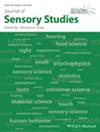In order to verify if the use of defective black, green, and sour (BGS) beans in preparation of Arabica coffee beverages influences their sensory acceptance, and to know the concentration at which the changes caused by these defects start to be perceived, the hedonic thresholds (HTs) and the detection threshold (DT), respectively, were studied. To sensory describe Arabica coffee beverages prepared from healthy beans added with BGS, Check-All-That-Apply methodology was applied. The addition of BGS did not negatively influence the acceptance of the beverages (p > .05) and HT could not be estimated. DT showed that consumers can detect sensory changes in beverages added from 10.25% BGS, but it does not influence their acceptance. We observed a predominance of terms related to weak and unappreciative in beverages added with lower concentration of BGS and terms related to common and appreciable for beverages added with intermediate and relatively high BGS concentration.
In Brazil, coffee is the most appreciated beverage by the majority of the population. However, its price increased in the domestic market, and the purchasing power of the population decreased, what makes it difficult to consume superior quality coffees, such as Arabica healthy beans. Brazilian laws neither prohibit the use of BGS beans, nor limit their use. In this study, although it was able to detect differences between beverages prepared with concentrations of BGS in healthy beans and to trace a sensory profile of them, we could not estimate the HTs for the concentration of BGS in healthy beans. There was no difference on the acceptance of the beverage with 100% healthy beans and those with BGS. Therefore, the consumption of coffee is related to habits and to individual sensory quality, which aids the industry to offer coffee that can be accepted and with reduced cost to Brazilian consumer.


